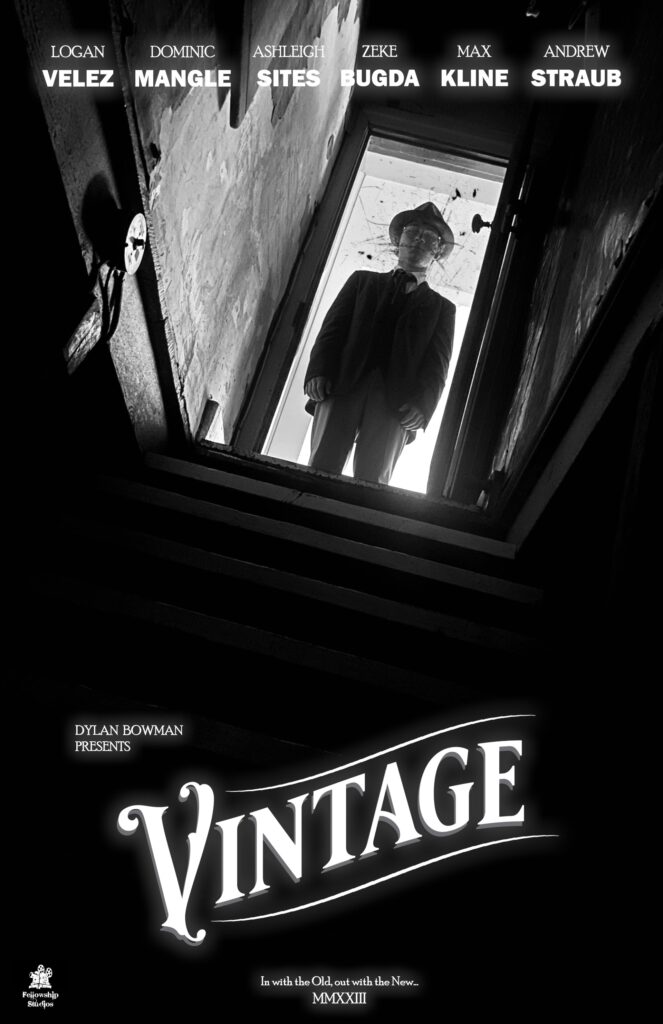Movies and how they shape our views and lives
Nostalgia, emotion, memories, philosophies and behavior – and good entertainment

By Nikolai Hogan
Knightly News Reporter
nikolai.hogan@mymail.centralpenn.edu
When it comes to forms of expression, cinema is one of the largest and most influential.
Seeing someone’s ideas fully realized on the screen can bring about immersion that no other form of media can, be it literature, drawings or music.
While thinking about this, some questions popped into my head: Why do people enjoy the movies they do? Does it affect how they act in everyday life? Can a movie really change someone’s behavior, say, even tenfold?

During the CPC Film Series showing of “V for Vendetta” this term, I asked several Central Penn students – all corporate communications majors – about their favorite movies.
Dalton Koller said “Pirates of the Caribbean: Dead Man’s Chest” (2006) is his favorite. He has seen the movie at least 30 times and can quote the film word for word. This may be an exaggeration but shows how much the film means to him.
Why is it his favorite movie? It holds significant nostalgic value and particular memories for him. He said he also finds the characters extremely well written. I expanded on this question by asking him what the film itself means to him, and he told me that it reminds him of his childhood and what he considers much simpler days.
Anderson Bridwell had a funny reply. He said his favorite movie was “American Pie” (1999). It’s his favorite movie because, he said, no matter how many times he has seen it, it continues to make him giggle. I then asked, “What does ‘American Pie’ mean to you?” He jokingly said: “The basis of America.”
Sarrah Al-Raddahi made it clear that she doesn’t have a favorite movie, and that her tastes in cinema are constantly changing. Her current favorite rewatch is “The Dirt” (2019), because of how much she enjoys following the real-life story of Nikki Sixx, the primary songwriter and performer for Mötley Crüe. She specified that while she can’t relate to all of what has happened to Sixx, there “were some aspects that I can relate to regarding his story.” She initially found it hard to say whether any films had changed how she looks at the world and life, but she settled on “The Dirt,” once again because of how tragic events can happen to people and how they can rise above that, and she has put that idea into her life.
Brynet Gray named a modern-day classic, the original 1994 Disney “The Lion King.” She has a nostalgic attachment to the movie. She said she used to watch it when she was a little girl, and that while it has funny moments, it also holds a lot of meaning that she still takes into consideration. When I asked her about how it may have affected her life or how she thinks of things, she instantly said “hakuna matata,” which watchers of the movie know translates to “no worries.” Gray said this is her philosophy and always thinks of the saying when life is bringing her down.
Abbee Breski, president of The Knightly News Media Club @ Central Penn College, said that her favorite was “A League of Their Own” (1992). It’s her favorite because she loves the story behind it and because it taught her a lot about the story of women playing sports during World War II.
She added that she loves softball, so she has a bias. When I asked whether the movie has affected how she looked at life and possibly changed her behavior, she said it has. She watched it at a young and impressionable age, and it let her feel that she could set her mind to anything in life and keep pushing no matter what obstacles were in the way.
No matter what genre or type of movie they prefer, people find themselves connecting with different films for different reasons. It can be nostalgia, great storytelling and writing, personal connections, or many other, or combinations, of reasons.
All of these have an impact on how people behave and look at everyday life, and it is another reason cinema is an important art form that will never die and that will prosper forever.
Comment or story idea? Contact KnightlyEditors@CentralPenn.Ed.
Edited by media-club co-adviser and blog editor Professor Michael Lear-Olimpi.



